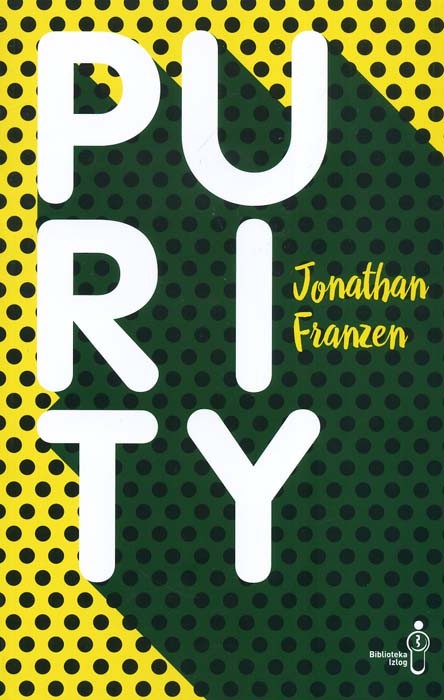
Just as with The Corrections and Freedom, where Franzen told his readers, right there on the covers, what the books were really about, Purity explores the consequences of living in a time and place in which many people value purity-spiritual, intellectual, political, emotional-above all else. In that, it's a true novel of the 21st century. Franzen seems intent on messing with us, and it's hard to say it's not fun discovering just how everything and everyone connects. (Good luck to the book club organizer trying to summarize this one.) He experiments with form, he frustrates with uneven pacing, and though he stalls and digresses at times, his approach mostly works.

There is graphic sex and a grisly murder and all manner of adult situations, yet to describe what one character does or means to another-or to explain how the shifting points of view and even an odd lapse into first-person narration come together-would only spoil the revelations that Franzen has in store for the patient reader. He focuses on three main characters with uncertain relationships to one another: a young California woman named Pip with no direction in life and a migraine of a mother a middle-aged journalist named Tom Aberant, who runs a nonprofit investigative website out of Denver and, most important, an Assange-like truth teller named Andreas Wolf, who rose from the ashes of East Germany to create the Sunlight Project, a WikiLeaks manqué based in Bolivia that aims to disinfect "social injustice and toxic secrets."

The man himself, in a talk at Harvard in 2008, once described the dichotomy between those who read because it's "the right thing to do" and those motivated by headier impulses, and to the latter group, the ones nose deep in whatever experimental Hungarian writer The New York Review of Books is pushing this week, he has lately become the Coldplay of American letters: talented, for sure, but so damn poppy.įranzen is nothing if not self-aware, and with his sly new novel, Purity (Farrar, Straus and Giroux, $28), he seems to have set his mind to undermining any accusations of middlebrowdom.

And it is rich, considering how valiantly he fought the Oprah imprimatur on The Corrections in the name of … what, exactly? Yet here he is in 2015, Jonathan Franzen, our nation's most middlebrow writer, read dutifully by the righteous Starbucks masses and begrudgingly respected by serious minds alike. It probably started when he published Freedom and the cover of Time branded him "Great American Novelist" without the courtesy of a clarifying The or A.


 0 kommentar(er)
0 kommentar(er)
